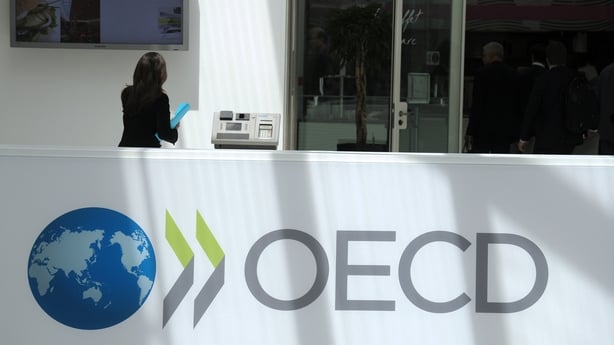Another leading international economic body today joined calls for Britain to stay in the European Union with the head of the Organisation for Economic Co-operation and Development saying a so-called Brexit would hit workers' pockets.
Leaving the EU would cost the average working Briton the equivalent of a month's salary by 2020, according to an OECD report today.
Angel Gurria, secretary general of the organisation which groups many of the world's leading economies, said Britain would not get a better deal for its economy outside the EU than in it.
He added that "Out" campaigners were indulging in wishful thinking ahead of the UK referendum on June 23.
"We made a whole series of calculations and we came out saying Brexit is a tax. It's equivalent to roughly missing on one month's income within four years and then it carries on - and there's a consistent loss," he said.
"There is no kind of deal that could go better by yourselves than you would be in the company of the Europeans," he added.
"Out" campaigners, chief among them London Mayor Boris Johnson, argue that Britain's economy would flourish outside the EU by saving its annual contributions to the bloc, freeing itself of red tape and striking its own trade deals.
Opinion polls show Britons are relatively evenly split on whether to leave the EU, despite warnings from international economic bodies that Brexit would leave them worse off.
Earlier this month the International Monetary Fund said Brexit would deal a damaging blow to the global economy.
Last week, US President Barack Obama warned Britain would move to "the back of the queue" in trade talks with Washington if it left the bloc.
The OECD's warning of lost income to British workers echoed the message from Britain's finance ministry which said last week that households would be £4,300 worse off each year by 2030 if the country left the EU than if it stayed.
Meanwhile, the UK's large current account deficit could become harder to finance and sterling might slide if the country votes to leave the European Union at a referendum in June, the OECD also cautioned today.
The OECD said Britain's economy would suffer a "major negative shock" and be 3% smaller by 2020 if it left the EU than if it stayed in, rising to 5% by 2030.
The uncertainty about Britain's economic prospects would raise the risk that the country would struggle to finance its large balance of payments shortfall, the OECD said in a report.

"A danger is that large capital outflows, or a break in inflows, might threaten the financing of the record-high current account deficit of 7% of GDP," it said.
The financial shock would be magnified by the appreciation of other currencies against sterling, it added.
The pound weakened sharply in early 2016 on concerns about the June 23 referendum but it touched a 12-week high against the dollar today on signs that the "In" campaign was gaining some momentum.
However, opinion polls continue to point to a close outcome of the vote.
The OECD warned that impact of a Brexit would not just be felt in Britain. "A UK exit would be a major negative shock to the UK economy, with economic fallout in the rest of the OECD, particularly other European countries," it said.
The cost to the remaining members of the EU would be around 1 percentage point of gross domestic product by 2020, the report estimated.
The OECD said some of the hit to Britain's economy could be offset if it managed to strike a trade deal with the EU similar to the agreement the bloc reached recently with Canada and which has been held up as a possible model by some "Out" campaigners.
"Yet, the costs of accessing the (EU's) single market would still be higher than they are now after that time," it said.

